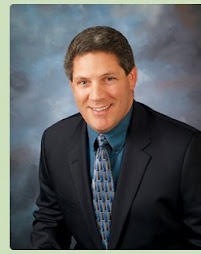Many attorneys believe Medicaid Law is challenging because it is constantly changing. If that scares you, I remind you many areas of law change often (i.e., tax law). Medicaid law on the other hand, has only changed twice in over 25 years. The first change came in 1993 with the passage of the Omnibus Reconciliation Act of 1993 (OBRA-93). There was not another change in the law until February, 2006 when the Deficit Reduction Act of 2005 (DRA-05) was put into law. DRA-05 attempted to close many loopholes and has created many obstacles for lawyers dabbling in this area. I believe, to the contrary, DRA-05 created the greatest opportunity we have seen in estate planning in more than 20 years. In 2006, my practice exceeded its greatest year by 40 percent, and I attribute it totally to the implementation of DRA-05. The question is, who is going to handle these complex issues for clients? Those willing to commit to learn the rules and implement them in a way to make it easier for clients to navigate, will undoubtedly be the winners. I have seen it in my own practice.
Clients today need leadership and options. They need to be able to get answers to their questions and solutions to eliminate their fears. I have yet to meet a senior-aged client, whether wealthy, of moderate means or poor, who is not concerned about “losing everything they have” to a nursing home. Estate planning today is no longer just about taxes or avoiding probate. It has become much more comprehensive due to the changing dynamics of our health care system which forces you to be either rich enough to pay for it all or so poor you’re not able to pay for anything. It provides nothing for those in between (which is a majority of estate planning clients). It also discriminates against the types of care needed. For example, Medicare will pay all costs associated with heart surgery (often $300,000 to $400,000), but pays little, if any, costs associated with care for Alzheimer’s ($60,000 to $90,000 per year).
Estate planning today requires a broad range of knowledge in several areas of the law. Obviously, you need confidence in how to draft wills, health care proxies, living wills, powers of attorney, and trusts. Now, you must also become familiar with Medicaid Asset Protection Trusts (MAP Trusts™). If you are going to practice in estate planning you must become familiar with the Medicaid qualifying rules and the trust and non-trust options to provide clients. You must also commit to a comprehensive approach to get a working knowledge of this area of the law. The good news is, it is a finite world, much less finite than tax law. Many estate planning lawyers avoid discussing Medicaid because they don’t understand it. Just because you don’t understand it, doesn’t mean you don’t have to understand it. You can no longer avoid it!
So remember the ad, “This is not your father’s Oldsmobile.” The rest of the story is many experts believe that single ad campaign led to the downfall and dissolution of the 103-year-old company. Estate planning is the same. It is not what it used to be. You must commit to learning the Medicaid laws and rules to accomplish the goals and objectives of your clients or you may suffer the same fate as Oldsmobile. Many attorneys I work with in this area report a more rewarding practice because of the good they are able to do for their clients. For those willing to dive in and participate in this exciting multi-faceted area of the law, you will create significant value to your clients and more opportunity for profit in your own practice.
[In part three and four of this article, we will cover the key Medicaid rules for you to be aware of.]
Wednesday, July 21, 2010
ESTATE PLANNERS CAN’T HIDE FROM MEDICAID ANY MORE: WHAT YOU NEED TO KNOW TO AVOID MALPRACTICE: PART 2
Subscribe to:
Post Comments (Atom)


No comments:
Post a Comment